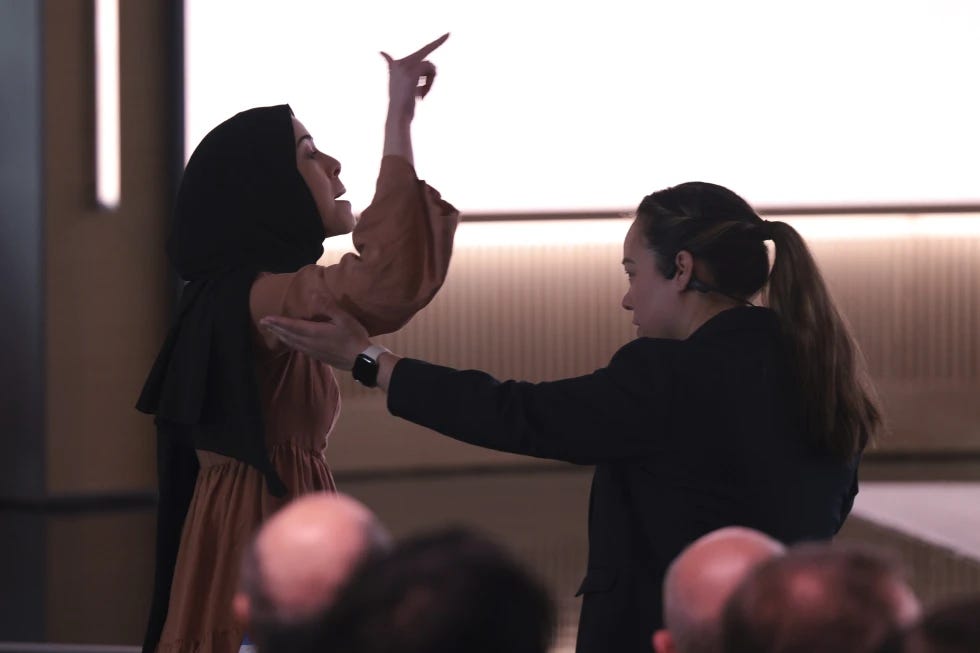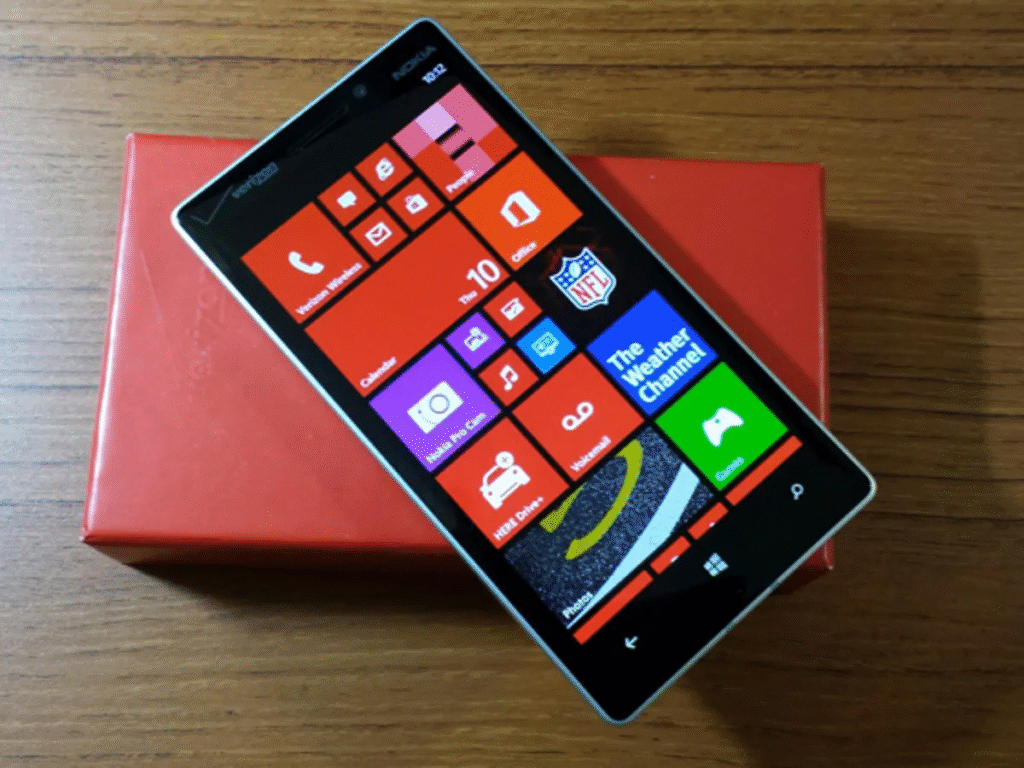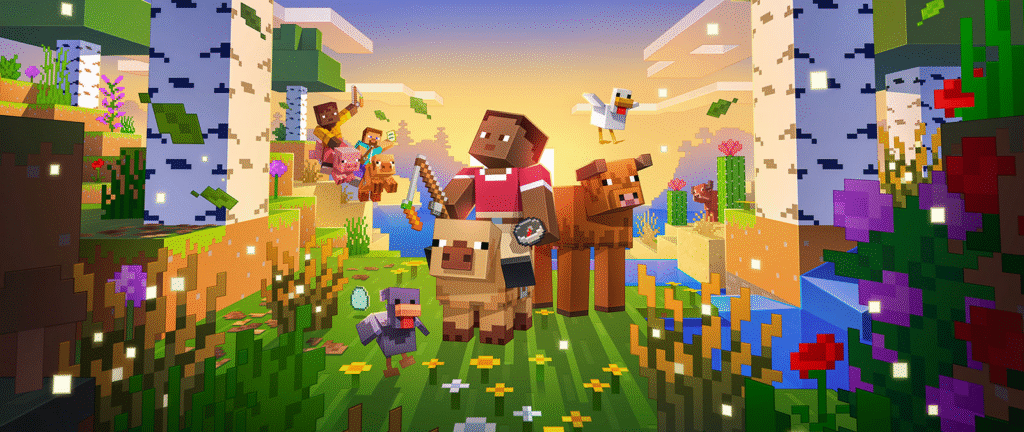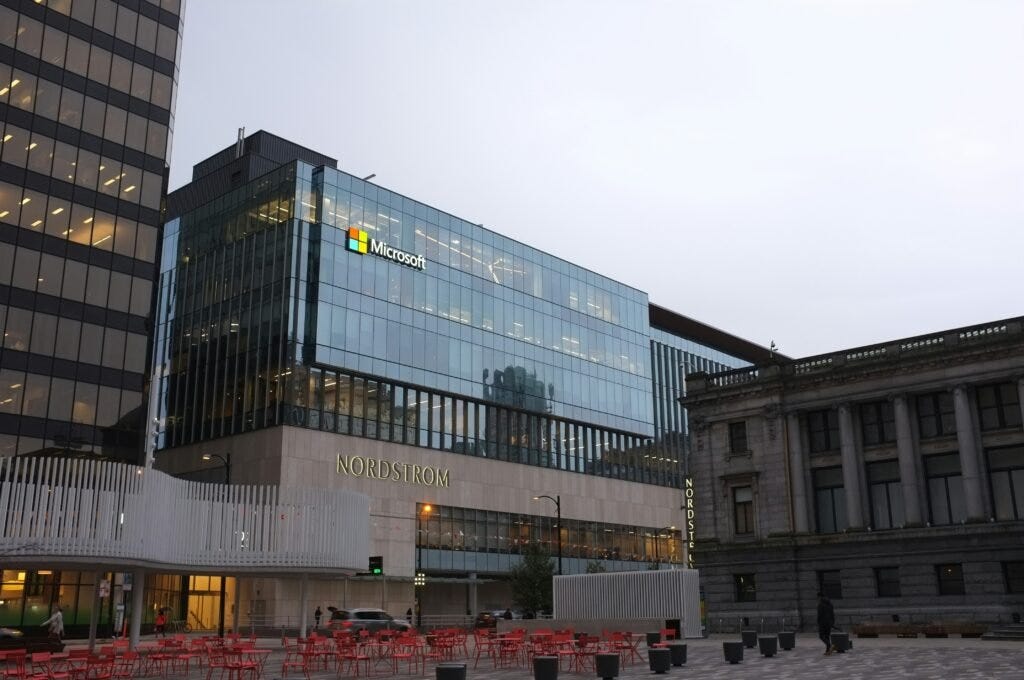I swear I’m not trying to exaggerate here. Read on.
Earlier this month (April 2025), Microsoft had an event celebrating 50 years since the company was founded by Bill Gates and Paul Allan. I’ll admit, I first knew about it when I saw the protest video of Vaniya Aggarwal and her colleague Ibtihal Aboussad on my Instagram. Of course, both of them were fired by the company. For disrupting the boring 50th Anniversary event which mostly consisted of boot licking and blowing their own trumpet.
I am not going to express my political views or “which side I am on” with regard to the subject of Vaniya’s and Ibtihal’s protests. What I will say is that I would be proud of these two employees – for standing up to a billionaire who made his money from the blood of hundreds if not thousands of people, and started a charity with much fanfare to try and make himself NOT look like the bad guy. Yes, I’m talking about Bill Gates.

I dug deeper and found that, in actual fact, their protest – their act of defiance – was the last resort. They knew they would get fired. They also know that their voices – and actually the voices of many of their colleagues – were continuously silenced. That’s because the company was more interested in a $133m contract with a certain government rather than listening to their employees.
This sound unethical to me. And that is just one of the many instances of Microsoft has engaged in unethical practices – that we know of – over the last 50 years to try and add a few more dollars into Bill Gates’ and his cronies pockets. Some have come to light via lawsuits and whistleblowers, and that’s just scratching the surface.
As I have grown up always skeptical of the intentions of big companies like Microsoft – especially ones that make showy commitments to ESG and other initiatives (not condemning the initiatives but I doubt the Company’s intentions behind these showy initiatives) I could connect the dots with news snippets about Microsoft over the years, and the company’s silent disdain and evasion of responsibilities in response to court rulings and whistleblower testimonies.
Let’s take a deep-ish look at this and why I made the statement that you read in the title of this post.

Firstly, Microsoft Didn’t really “invent” an Operating System
They never claimed they did, but they don’t give credit to the real inventors either.
There’s this company called Xerox – the same company that is synonymous with the photocopy machines that’s staple of every corporate and academic institution. In the early 1970s setup the Palo Alto Research Centre (PARC) to put side minds and money for innovation. One of those innovations is the Graphical User Interface. It is one of the first computers to use a WYSIWYG (What You See Is What You Get) text editor and has a bit-mapped display.
It is the very foundation of personal computing today – complete with a display, keyboard and mouse setup and almost limitless potential. This was the Xerox Alto.

Ironically, Xerox’s management was not too interested in this and other innovations.
In 1979, Steve Jobs arranged a visit to Xerox PARC, during which Apple Computer personnel received demonstrations of Xerox technology in exchange for Xerox being able to purchase stock options in Apple. After two visits to see the Alto, Apple engineers used the concepts in developing the Lisa and Macintosh systems.
Apple bought it from Xerox, and at the time had licensing agreements with Microsoft as an outside developer, to develop the operating system together with early mouse-based software for the Macintosh. They ran into snags, and the launch of the Macintosh was delayed. And while Apple was focused on fixit it for the joint project, Microsoft made “surprise” launches of a certain mouse-based word processor named Microsoft Word, coupled with a graphical user interface environment they named Windows.
Could Microsoft have done it without Xerox and Apple? I’d argue not. Did they take full credit for it? I’d argue yes.
You can read the full story here. There’s even a lawsuit which was first between Apple and Microsoft, and Xerox got involved.
What’s most amazing is this particular quote from Bill Gates to Steve Jobs about Xerox:
It seems more like we had a wealthy neighbor named Xerox together, and when I broke into his house to take the TV, I discovered that you had already taken it.
– Bill Gates
Microsoft Never ‘Made It’ Alone
If you grew up in the 90s like me, you’ll remember that Microsoft’s ‘innovations’ were paraded everywhere. And where their products flopped (remember the Zune? no? how young are you??) they died a mostly-quiet death, albeit with the advent of tech blogs they were ridiculed more. But let’s back up for a bit, let’s go through the evolution of the company very briefly.
The Microsoft “empire” started off as software for the better part of two decades. They managed to achieve this software monopoly-of-sorts (Windows) by being widely available as a standalone software product. so you could choose your own hardware / PC that’s made by IBM, Samsung, Dell, HP or whoever.
Yes we pirated Windows, but that’s not important anymore. Until you get caught at least.
It did however try its hand at hardware in as early as the 1980s – largely on expansion cards, input devices, and peripherals, often bridging compatibility between different systems. For example, Microsoft made RAM cards for the Apple II in 1980 and for the IBM PC in 1982. In the 1990s, Microsoft made the BallPoint mouse and a few other peripherals.
Arguably, Microsoft’s first successful mainstream hardware product was the Xbox released in 2001, and always being the second-most-popular hardware gaming console (third since the Nintendo Switch released in 2017). Since then its gaming division has expanded with Xbox Game Pass, and development of a few games that admittedly are cult classics. Games such as Halo, Age of Empires (I still remember the cheat codes), Forza (courtesy of Playground Games) and the status-symbol-touting Microsoft Flight Simulator. And some major acquisitions in the gaming space, including the $75.4b acquisition of Activision Blizzard which they proceed with even after major allegations of misogyny and harassment at the target company.

Somewhere along the way, Microsoft tried making a dent in mobile through Windows Phone – which took some time to decisively flop – and its acquisition of Nokia after the company was past its prime. Then they gave up on the mobile space.

After the Xbox, the real successful hardware lineup from Microsoft is the Surface. And the surface laptops are still some of the best all-purpose Windows laptops out there, pricing aside.
Here’s a fun list from one of my favorite websites, The Verge – The 50 best things Microsoft has ever made
But Microsoft of course did not do this alone. Like every major tech company that made it to a ridiculous valuation (and I will write about all of them like I am writing about Microsoft now), they made a few strategic acquisitions that the US Government allowed to pass through despite antitrust concerns:
- Visio Corporation in 2000 for a then-ridiculous price of $1.5bn, but Visio’s diagramming software became a key part of Microsoft Office.
- Skype (RIP) in 2011, it was THE VoIP software around the world. Skype’s communication platform was integrated into Microsoft’s suite of products, and one can’t argue that it did not give way to Microsoft Teams.
- Mojang in 2014, which is the studio behind Minecraft, still one of the world’s most popular games.
- LinkedIn in 2016, so it has all your professional data.
- GitHub in 2018, yes – GitHub, the world’s leading platform for software development collaboration.
- Bethseda in 2021, this brought studios like Bethesda, id Software, and Arkane into Microsoft, along with franchises such as The Elder Scrolls, Fallout, and Doom.
- Nuance Communication in 2021, purchased for $19.7 billion, this acquisition strengthened Microsoft’s position in cloud and AI, especially in healthcare

Microsoft Is Built On Monopolistic and Anti-Competitive Behaviour
I’ll start with a simple example. On your Windows PC, do you still use the Microsoft Office Suite? Or even worse, do you still use Microsoft Edge? These are not the best softwares or tools in their categories (except maybe Microsoft Excel for workaholics). But they are the most widely used, simply because Windows is the most commonly used operating system and these are the default applications.
If you got a Mac, you will remember you need to install Microsoft Word.
Granted that each operating system has their own defaults and it’s not illegal or even unethical for Microsoft to have all these default applications in Windows. But did you know, there was a U.S. antitrust case in 1998 accused Microsoft of making it difficult for consumers to install or use competing software? This led to significant legal scrutiny and restrictions on its business practices and finally some forced changes, ‘unbundling’ to an extent.
I have listed most instances below, tried grouping them into sub-headings so you can see themes in Microsoft’s practices.
Bundling
Microsoft has faced many lawsuits globally for unlawful monopolistic practices, most notably in the United States and European Union. The company was found guilty by the EU in 2004 and fined €899m for abusing its market dominance, such as bundling Internet Explorer (YUCK!) with Windows to stifle competition from rivals like Netscape.
Bribery and Corruption
Multiple whistleblowers and investigations have alleged widespread bribery in Microsoft’s foreign contract business, with claims that over $200 million annually was spent on bribes and kickbacks to secure government contracts worldwide.
Specific cases include Microsoft Hungary, where employees facilitated bribery by inflating software margins, resulting in over $8.7 million in criminal penalties. Read more here.
Privacy Concerns
Microsoft was the first major tech company to participate in the NSA’s PRISM surveillance program, providing the U.S. government with access to user data from services like Outlook, OneDrive, and Skype, often circumventing encryption.
Bad Update Behavior
Windows 10 was criticized for aggressive data collection—telemetry, user behavior, contacts, and more—which could not be fully disabled in non-enterprise versions. It was almost like Windows 10 was being forced on users.
Deceptive Marketing and Astroturfing
Microsoft has been involved in deceptive marketing campaigns, such as paying influencers to promote Xbox One without proper disclosure, violating FTC guidelines. The company ended the campaign and required disclosures after the controversy surfaced.
There have also been instances of employees posting undisclosed positive reviews online, a practice known as astroturfing.
Censorship and Compliance with Authoritarian Regimes
Microsoft has cooperated with the Chinese government to implement Internet censorship, including running a censored version of Bing and restricting searches for sensitive topics such as the Tiananmen Square massacre.
In 2021, Bing was found to have censored “Tank Man” images globally, which Microsoft attributed to human error, though critics doubted this explanation.

Discrimination and Diversity Issues
In 2009, Microsoft was criticized for editing a promotional photo to replace the head of an African-American man with that of a Caucasian in the Polish market, leading to accusations of racial insensitivity.

Journalist Blacklisting
Microsoft has been accused of blacklisting journalists who were critical of the company, denying them access to information or interviews as a form of retaliation.
Retaliation Against Whistleblowers
Whistleblowers who exposed unethical practices within Microsoft have reported retaliation, professional blacklisting, and lack of institutional support, indicating a culture that discourages reporting misconduct. The latest example is Vaniya and Ibtiham.
Did someone say, Antitrust?
Antitrust refers to legislation built to hinder monopolistic behavior and promote market competition and fair market. In the US it’s what lead Rockefeller’s Standard Oil to be broken up towards the end of the 19th century, and have protected the market from monopolistic actions of several companies since then, including Microsoft.
Here’s a table of the Key (not even All) antitrust cases against Microsoft.
| Case Name | Year(s) | Allegations | Outcome | Resulting Penalties |
| United States v. Microsoft Corp. | 1998-2001 | Monopolizing web browser market through bundling IE with Windows and restrictive practices against competitors. | Initial breakup order by District Court (later vacated in part); Settlement requiring API sharing with third parties. | No direct financial penalty in the final settlement. |
| European Commission Antitrust Case | 2004 | Breaching EU competition law by leveraging Windows dominance to harm competition in other software markets. | Finding of breach. | €497 million fine. |
| South Korea Antitrust Case | 2005 | Unfair competition by bundling instant messaging and media player software with Windows. | Finding of violation. | $32 million fine; Order to unbundle or allow competitors’ products. |
| European Commission Antitrust Case | 2008 | Failure to comply with the 2004 judgment. | Finding of non-compliance. | $1.3 billion fine. |
| FTC Investigation into Cloud Computing Business | 2024-2025 (Ongoing) | Allegedly leveraging Office 365 market power to benefit Azure cloud service through bundling, pricing, and incompatibility tactics; Scrutiny of OpenAI partnership. | Ongoing investigation. | Potential fines or changes in business practices if violations are found. |
| European Commission Investigation into Teams and Office 365 | 2023-2025 (Ongoing) | Allegedly tying Teams to Office 365 and Microsoft 365, restricting competition in communication and collaboration market. | Statement of Objections issued; Ongoing investigation. | Potential fines (up to 10% of global annual turnover) and forced changes in bundling practices if violations are found. |
For the interested, you can view more details of antitrust cases in this Google Doc.
This post is public so feel free to share it.
Can I Stop Using Microsoft Products?
I will be real – today it is almost impossible to not step on a Microsoft product. I use a MacBook but I have Microsoft Word and Skype installed. I use an iPhone and an Android phone but have Call of Duty installed (even though I hardly play it).
At my day job we use Windows – all 40,000 of us across the company.
My wife shares files with me through OneDrive. I login many service websites which use Crowd Strike for security purposes (so much so that when there was economic impact when there was an outage).

But here’s something that I try to do, which I know I cannot absolutely recommend but I follow myself – as far as possible, don’t pay additional dollars for Microsoft products. Use the free tier for the Microsoft Office suite. Don’t pay for any in-app purchase on Minecraft.
I’ll also admit it is easier for me to do the above because I use iOS and MacOS. But the thing is, by nature I avoid paying for apps, for services or for premium tiers of any application or service (except YouTube because I want the ad-free experience on my personal channel). I don’t even pay to promote my social media posts – or for a “verified” badge on X or Instagram I’ll keep this going, and will write about it with a few tips and tricks probably a year from now.
And one final request from me – if you have a friend or family member working for Microsoft, check in on them.
Thanks for reading!
PS: Many of you will read this and say “so what, every big tech company has practices like these, Microsoft is no different” well okay then I will write about every big tech company and call them out.
Tell me which company I should write about next.

[…] government employees in the State Department and Department of Commerce through a vulnerability in Microsoft’s email […]